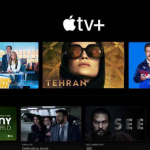Unveiling a Potential Healthcare Data Breach and Patient Information Exposure
4 min read
Introduction: In a digital age where healthcare relies heavily on technology, the specter of data breaches looms large. This article delves into a recent incident where a healthcare data breach may have compromised patient information, raising crucial concerns about data security and the potential impact on individuals’ sensitive health data.
The Alarming Incident Uncovered: Recently, a healthcare organization faced a potential data breach that could have exposed patient information to unauthorized access. This incident underscores the vulnerabilities within healthcare systems, emphasizing the need for robust cybersecurity measures to safeguard sensitive data.
Scope of the Breach and Affected Individuals: Understanding the scope of the breach is paramount. How many individuals may have been affected, and what types of patient information are at risk? These questions need answers to gauge the severity of the incident and assess the potential consequences for those whose data may have been compromised.
Types of Patient Information at Risk: Healthcare data breaches put various types of patient information in jeopardy. This includes personal details, medical histories, insurance information, and even, in some cases, financial data. The comprehensive nature of healthcare records makes them an attractive target for cybercriminals.
Potential Motivations Behind the Breach: Examining the potential motivations behind the breach is crucial. Whether it’s for financial gain through identity theft, accessing prescription information for illegal sales, or other nefarious purposes, understanding the motives sheds light on the broader landscape of cyber threats in healthcare.
Immediate Actions Taken by the Healthcare Organization: How a healthcare organization responds to a data breach is indicative of its commitment to patient welfare. Immediate actions, such as notifying affected individuals, implementing enhanced cybersecurity protocols, and cooperating with relevant authorities, showcase a proactive approach to mitigating the impact of the breach.
Legal and Ethical Implications: Beyond the immediate fallout, healthcare data breaches carry legal and ethical implications. Patients trust healthcare providers with their most sensitive information, and breaches can erode this trust. Navigating the legal landscape, addressing compliance issues, and upholding ethical standards become paramount in the aftermath of such incidents.
The Role of Cybersecurity in Healthcare: The incident highlights the pressing need for reinforced cybersecurity measures in the healthcare sector. Investing in state-of-the-art cybersecurity technologies, conducting regular risk assessments, and providing comprehensive training to staff are integral components of a proactive cybersecurity strategy.
Impacts on Patient Trust and Future Healthcare Interactions: Data breaches can have lasting effects on patient trust. Understanding how this incident may impact individuals’ willingness to engage with healthcare providers in the future is crucial. Rebuilding trust through transparent communication and heightened security measures becomes a priority.
Public Awareness and Vigilance: Creating public awareness about the prevalence of healthcare data breaches is essential. Individuals need to be vigilant about monitoring their healthcare records, reporting suspicious activities promptly, and understanding their rights and options in the event of a data breach.
Long-Term Industry Changes and Lessons Learned: As the healthcare industry grapples with this breach, it provides an opportunity for introspection and learning. Long-term changes in data security protocols, industry-wide collaboration on cybersecurity best practices, and a commitment to continuous improvement are essential outcomes to prevent future breaches.
The revelation of a potential healthcare data breach serves as a stark reminder of the persistent threats to sensitive patient information. As the affected healthcare organization takes steps to rectify the situation, the broader healthcare industry must embrace this incident as a catalyst for transformative change. Strengthening cybersecurity, prioritizing patient trust, and fostering a culture of vigilance are imperative to navigate the evolving landscape of healthcare data security successfully












